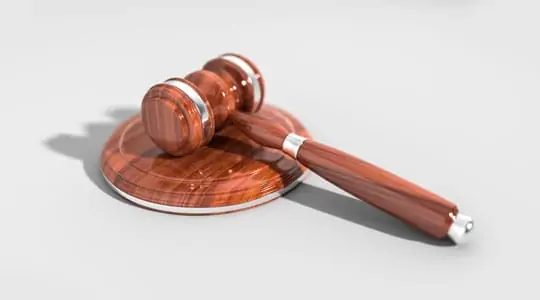Murphy v. National Collegiate Athletic Association
The Supreme Court’s Decision on Sports Betting in the United States: The Federal Government May Not Force States to Prohibit Sports Wagering.
The Law
In 1992, Congress passed the Professional and Amateur Sports Protection Act (PASPA).1 While the federal law did not ban sports betting nationwide, it prohibited states legislatures from legalizing the activity at the state level. At that time, Nevada, Oregon, Delaware, and Montana were engaged in sports betting activities and were permitted to continue their activities through a grandfathering provision. PASPA also provided a one-year grandfathering period in which states with legalized casino gambling could pass a law permitting sports betting. No state passed a law in the one-year timeframe and sports betting has been limited to four states, with Nevada being the only state offering complete sports betting, including wagering on single games.
History
In 2011, New Jersey passed a state constitutional amendment through voter referendum, permitting the state legislature to legalize sports betting at racetracks and casinos. In 2012, New Jersey did just that.2 As a result, five major sports leagues and the United States attorney for New Jersey challenged the state, arguing the legislation violated the federal PASPA law. The United States District Court held in favor of those challenging the law, declaring that PASPA preempted New Jersey’s legalization.3 Opponents to NewJersey’s sports betting legalization prevailed again in 2016 when the 3rd Circuit Court of Appeals upheld the lower court’s decision.4The Supreme Court heard the case in December of 2017 and issued their decision on May 14, 2018.
The Supreme Court Decision
Departing from the two lower court decisions, the Supreme Court held PASPA was unconstitutional because it violated the 10thAmendment by putting state legislatures “under the direct control of Congress.” The Court said “Congress can regulate sports gambling directly, but if it elects not to do so, each State is free to act on its own.”5 Sports betting may be banned/legalized/regulated at the federal level, until then, states are moving to legalize and regulate the activity within their borders.
Current Status
In addition to New Jersey, Pennsylvania, Mississippi, West Virginia, Connecticut, and New York have passed laws to allow for sports betting pending the outcome of the Supreme Court case.6 While these six states have moved toward legalized sports betting, each are grappling with implementation and regulation. Maryland considered legislation that would have given voters the opportunity to legalize sports betting, but that legislation failed.7 If legislation is introduced and passed in 2019, the issue would appear on the 2020 ballet for voters to decide.
Next Steps
As states begin implementing legalized sports betting, and even more states begin considering similar, the Maryland Center of Excellence on Problem Gambling will be following the issue closely. The Center will be monitoring data on the impact of these legislative changes across the country and monitoring statutory and regulatory language to inform the conversation surrounding these legislative changes.
If you have any questions, please contact Mellissa Sager, the Maryland Center of Excellence on Problem Gambling’s GovernmentAffairs Coordinator at msager@law.umaryland.edu.





